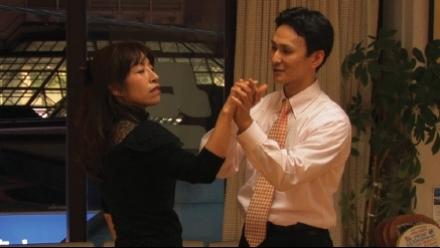Director: Julie Moggan
Certificate: TBC (85 mins)
Humans and their troubled relationship with fantasy and ‘real life’ could well be said to be the theme of the entire literary canon, and when it comes to love, virtually every pop song has trembled on the fault line that divides the real from the un-real. And then, when it comes to romantic fiction, you could summarise untold numbers of books by having two people put their dreams and realities into a blender and drinking whatever comes out. From a distance, it’s easy to feel dismissive, but for a film motivated by the attraction of bathos – that the people behind the fantasies of romantic novels are going to be messier, uglier and more boring than their fictional counterparts – Guilty Pleasures is to be praised for never sneering at its subjects. Instead the tone remains sweet and amused throughout, tender even, towards those involved in the vast industry, the writers, readers, and cover stars.
Guilty Pleasures takes us through a handful of case studies as the film attempts to get to the heart of this phenomenon. There are the enchanters and the enchanted – Roger, who writes as Gill Sanderson; male model Stephen, who has adorned hundreds of covers variously posing as a cowboy, soldier, frilled regency baron or oiled foreign lover; and three avid readers from Tokyo, Delhi and Warrington. Through relationships with their fictional lovers, real lives and real loved ones, we are brought into their experiences of Mills and Boon and all they entail.
We all know that reading romantic fiction involves a certain amount of escapism, but from what and to what? For Hiroko, it’s a leap towards her dream of being swept away into a dancing competition with a tall, blue-eyed partner; for Shumita, the books are an escape from her relationship with estranged ex-husband (and Porsche-driving idiot) Sanjay. Both intoxicate themselves with the predictable, lavish world of Mills and Boon, with its happy endings, intense meetings and (interestingly, one of the many rules) sex that only ever occurs in the context of loving relationships. You have the sense that both view their lives with a double vision: the everyday world of cleaning dishes or worrying about your ex’s new partner, and the fantasy world that comes alive so brightly every time a new book is opened.
The spinner of these tales, Roger, lives a solitary life amidst cups of tea, healthy walks and meetings of the Romantic Novelists Association, where he is the only male. As he remarks, the writers there are all ‘past the first flush of youth’. Many of the funniest parts of the film come with a voiceover (intoned by either the writers or the readers in deadpan, normal voices) of some of the romantic prose whilst everyday life continues on the screen: Roger composing a steamy scene whilst he slurps his tea, for example. It is, in a way, a testament to the power of the human imagination that it can create such excitement without any external correlation (despite what pop culture would have us believe of ‘creative lifestyles’) that Roger and his peers can conjure up such fantasy in spite of the humdrum world they inhabit.
The real star of Guilty Pleasures is Stephen, the model. At first I was tricked into thinking him another Derek Zoolander – ‘I'm pretty sure there's a lot more to life than being really, really, ridiculously good looking. And I plan on finding out what that is’ – with his talk of Taoist orgasms and the difference between soulmates, counterparts and twin flames. He spends his days working out, tanning and berating himself for eating a few too many chips, but behind the sweet, screen-filling smile and strange orange body there is another human heart trying to make sense of being alive and alone. As Hiroko and Shumita gaze at his torso on the cover of another novel, he scrubs anxiously at his desk in Miami, trying to remove a tiny pink stain that his new girlfriend has discovered. His face furrows in concentration and he snaps at the girl, telling her to bring the right spray from his collection in the kitchen. She shrugs at the camera, puzzled at his obsessive behaviour. Just another human being after all.
Though we are left with doubts about Shumita and Stephen, it’s the marriage of Phil and Shirley that provides the uplift. Phil suffers from manic depression and his reading list includes books like the Road Traffic Police Manual; and there’s a sigh of relief in the cinema as he decides that he will, after all, buy Shirley a card for Valentine’s Day. Shirley, the Mills and Boon fan, talks openly of the distance between Phil and the lovers named Dash and Hunt and Chase who people her imagination, and her friends’ advice to leave him for someone more exciting and less hard work. As someone gearing up for a marriage beginning next Spring, I was recently told that God delights in a husband and wife’s delight in each other, and that’s never truer than in the fidelity that exists between Phil and Shirley. In spite and because of the difficulties and boredoms life has thrown their way, they remain entwined. Now that’s a fantasy worth having.
Nathan Koblintz
![]() Visit this film's official web site
Visit this film's official web site






